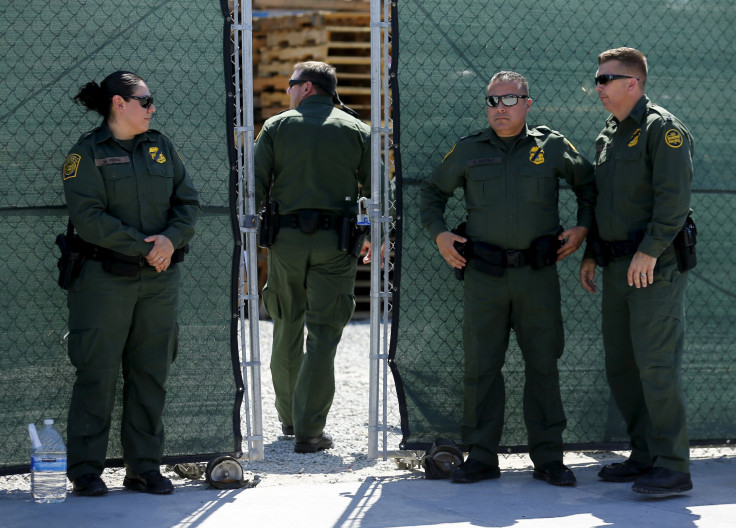Could US Go To War With Mexico? Trump Launches Trade War That Could See Catastrophic Results

President Donald Trump stepped up his harsh rhetoric toward Mexico this week after President Enrique Peña Nieto canceled an upcoming summit in Washington, D.C. Trump slammed the Mexican government, one of the nation's most important allies and biggest trading partners, in a tweet Friday morning, writing "Mexico has taken advantage of the U.S. for long enough."
Tensions have been fueled by the new White House administration's plan to issue a 20 percent border tax to pay for the United States' southern border wall. Trump is expected to sign a series of executive orders as early as Friday or in the coming days that will effectively allow Congress to appropriate funding for his key campaign promise, a "big, beautiful" wall along the southern border, as well as a total reformation in U.S. relations, trade deals and visa programs with Mexico.
"Massive trade deficits [and] little help on the very weak border must change," Trump said Friday. "NOW!"
The administration's harsh rhetoric, including claims Friday from the president's senior adviser, Kellyanne Conway, that Mexican officials don't want to pay for the wall because they want drugs to continue "pouring over the border," has caused some critics to wonder whether a Trump presidency could be catastrophic for both nations' economies, as well as for at least six million U.S. workers whose jobs are dependent on U.S.-Mexico trade.
"The U.S. has a 60 billion dollar trade deficit with Mexico," Trump wrote on Twitter Thursday. The U.S. is, in fact, on its way to reaching Trump’s claim, MarketWatch reported. But his claims that the nations’ trade "has been a one-side deal from the beginning of NAFTA with massive numbers of jobs and companies lost," isn’t exactly verifiable. The U.S.-Mexico trade deal, enacted in 1994, caused U.S. exports to Mexico to soar from $68 billion in 1994 to nearly $235 billion by 2016, while imports from Mexico climbed to $295 billion from just $65 billion in 1994.
Meanwhile, at least six million jobs depend on trade with Mexico, according to BorderCouncil.org. Those U.S. jobs could be jeopardized if trade halts along the U.S.-Mexico border, which reportedly happened when U.S. Customs and Border Protection turned away 100 tons of Mexican avocados Wednesday. It’s unclear whether the shipments were halted due to federal orders from the Trump administration.
"President Peña Nieto's cancelation of his trip is an understandable and logical decision given Trump's comment that he should not come unless Mexico will pay for the wall," Washington Office on Latin America, an advocacy organization for human rights in the Americas, said in a statement emailed to International Business Times. "The construction of a wall at the border and what it represents is inhumane, ineffective and costly, and it sends a negative message to the region and to Mexico. The United States and Mexico are important neighbors and their relationship should be based on respect, partnership, and cooperation—not building walls. Any meeting between the presidents should be based on these principles."
© Copyright IBTimes 2024. All rights reserved.












